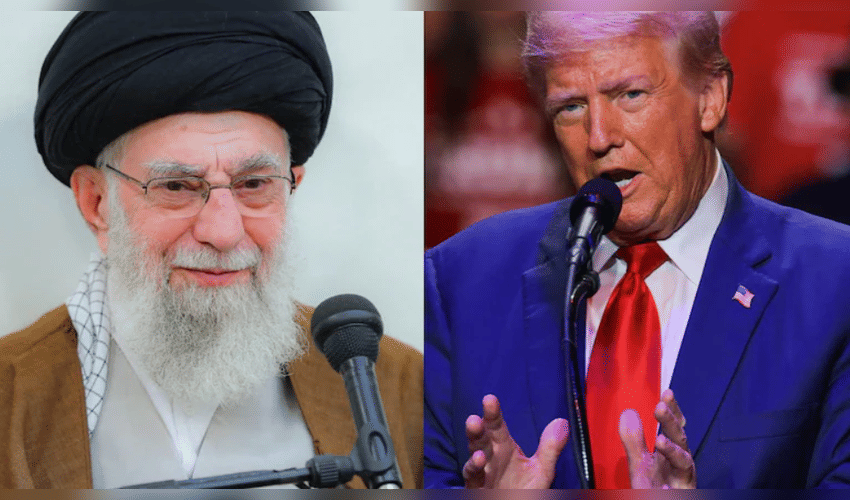Politics
Iran's Supreme Leader Khamenei Mocks President Trump Amid Massive 'No Kings' Protests in US

Iran's Supreme Leader Ayatollah Ali Khamenei recently delivered a sharp rebuke aimed at U.S. President Donald Trump amid widespread "No Kings" protests sweeping across all 50 states in America. These protests saw millions — estimated at seven million participants — rallying against Trump's administration, voicing opposition to his immigration, education, and national security policies which many critics claim edge the country toward authoritarian rule.
In a pointed message posted on the social media platform X, Khamenei taunted President Trump to prove his leadership by calming these massive demonstrations rather than interfering in other nations' affairs. He wrote, essentially challenging Trump's capability by stating: "If you’re that capable, calm them down, send them back to their homes, and stop meddling in the business of other countries." This was a clear jab at Trump’s handling of domestic dissent and foreign policies alike.
Khamenei’s comments came shortly after he rejected offers from the U.S. to resume nuclear negotiations, underscoring Iran’s firm stance on its sovereign right to maintain nuclear capabilities. He dismissed Trump's claims that American airstrikes in June had destroyed significant portions of Iran’s nuclear infrastructure, instead telling Trump to "keep dreaming." The Supreme Leader questioned the legitimacy of the U.S. dictating how Iran should manage its nuclear industry, asserting that such interference is "wrong, arrogant, and bullying."
The "No Kings" protests themselves have been a notable moment in U.S. civil unrest, driven by concerns that Trump's policies represent a slide toward autocratic governance. Protesters united under the slogan "No Kings," symbolizing their resistance to what they see as one-man rule, and demanding democratic values be upheld. The magnitude of participation across the country reflects deep societal divisions and a demand for accountability from the administration.
Iran’s leadership, typically critical of U.S. policies, used the protests as a narrative tool to both undermine Trump’s image internationally and highlight America's internal challenges. Observers note this reflects a broader strategy by Tehran to portray Washington as politically unstable, thus bolstering Iran’s geopolitical posture amid ongoing tensions.
From another angle, the taunting from Iran’s Supreme Leader reveals the complex interplay between domestic unrest in the U.S. and foreign adversaries' use of such moments to criticize or weaken American influence on the global stage. It raises broader questions about how internal political dynamics in powerful nations can echo far beyond their borders, influencing international relations and perceptions.
It’s important to illustrate not just the direct exchanges but the wider context: the ideological clash, the role of protests in democracy, and how foreign leaders use these internal conflicts for diplomatic messaging. This nuanced approach can engage readers looking for more than just headline news, offering insight into the intricate dance of modern geopolitics and domestic dissent. Khamenei’s sharp response reflects persistent tensions between the U.S. and Iran, while also spotlighting one of the largest protest movements in recent U.S. history. It serves as a reminder that in today’s interconnected political world, movements at home can become powerful symbols used in global power plays.



